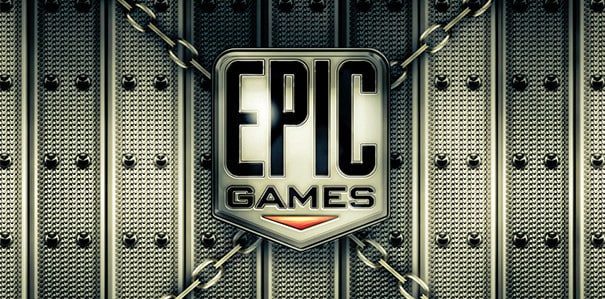Could Epic Games change gaming development?

Epic games is a company known to the public because of its award-winning and popular video games, the most famous of all belong to the Gears of War series for the Xbox 360. PC and old school gamers, however, probably identify them for their iconic series of first person shooters. The last iteration of Unreal Tournament was released on 2007. Traditionally Unreal Tournament games were developed and released to showcase their latest graphic engine and with Unreal Engine 4 some expected a new entry of the classic series. Something way more interesting happened.
Unreal Engine 4: quasi open source
Let’s me preface this by making an important distinction. Unreal Engine 4 isn’t open source and therefore isn’t free software either, however, the entire code of Epic Games’ new engine is available on GitHub. Their new licensing model is a subscription one in which you pay $19 a month. For your money you get access to all their tools and the source code (which you can fork to your heart’s will). If you make a game using Unreal Engine 4 you owe them 5% of your gross revenue (which incidentally means you don’t owe them if everything in your game is free). Moreover, you can submit changes to the code and if approved they will become part of Unreal Engine 4.
Unreal Engine 4.1 is available on GitHub and has Linux as well as Windows, Mac OS X and even Android support. Consoles support is missing. According to Epic Games its omission is because of Non-Disclosure Agreements that forbid them from publishing the source of their console versions of the engine. It supports Linux not only as a targeting platform but also as a development platform. In their own words:
While the Unreal Engine has enjoyed Linux support in the past, with Unreal Engine 4 we want to make Linux a first class member of our platform family.
While Unreal Engine 4 isn’t open source it certainly is more open than most alternatives. The terms seem fair enough. In a perfect free-software only world we would pay developers to develop stuff and that’s it. This comes surprisingly close, the $19 could be seen as a way to pay the developers to keep developing it and the 5% of gross revenue as a fair enough fee considering the monumental work an engine is.
So the engine may have transformed into something a bit more like open source, but not the games themselves. Hence the second part of the story.
Unreal Tournament 4: Crowdsourcing development
Instead of just creating a new entry on the series, Epic Games has decided to make the game in a sort of open source-like manner. Again a caveat, just as Unreal Engine, it’s not really open source. Likely, the best way of thinking it is they’re partially crowdsourcing the game. A group from Epic Games are the maintainers and main developers and all the public can contribute ideas and code to the source. The game is being publicly developed and the main developers stay in constant contact with the community through twitch and other mediums.
Everything from the timeline to the actual code is available. The game will also be free (as in beer) when it’s done. At this point some may be wondering how are they going to monetize it. For a real world example of what they plan to do we need to take a look at Valve.
Free-to-play that doesn’t suck
It’s no secret that many free-to-play games are terrible, especially games that are relatively complex. This happens because their business model affects the design of the game. Sometimes referred pejoratively as pay-to-win many games use mechanics that force the player into buying in-game currency or items to be able to complete a game, win a match or simply enjoy it. Usually this is done by making key items inaccessible without unreasonable grinding. The worst of the worst are probably the games that offer limited time of free playing per day and sell you extra time.
Although the gaming press tends to mention Team Fortress 2 as an example of a well designed free-to-play game, hence sometimes the concept is referred to as the “hat economy”, it really isn’t the best instance of a free-to-play business model. Team Fortress 2 sits somewhat in the middle of the terrible and amazing of the free-to-play spectrum. Why? Because for Team Fortress 2 Valve sells items that can affect the gameplay. In other words, people who pay more have an advantage over people who pay less. Although not nearly as bad as what is usually found on mobile, it’s still an experience that has a bit of the pay-to-win mentality.
We need to look at another game by Valve to find a free-to-play game that strikes me as incredible: DOTA 2. It’s no accident that DOTA 2 is the most popular game on Steam. The game is incredibly well designed and free-to-play in its purest form. Nothing you can buy on DOTA 2 can ever affect the result of a match. Everything they sell is purely cosmetic. Most things sold on the DOTA 2 market are also made by the community or third parties. Valve makes money by taking a percentage of the sale, the rest goes to its creator.
Understandably, many spectators were skeptic as to how much money people would be willing to pay just for things that do not have any impact on the game. Thankfully the skeptics were proven wrong. Players are willing to pay for fun things of mere cosmetic value. For example, Valve has raised over $6,600,000 for the prize pool of its international tournament of DOTA 2 in only a few days. Since only 25% of the actual value of the sales of compendiums and compendiums points goes to the pool, this means Valve has sold over $26,400,000 worth of them.
And that’s only the money we can deduce from their public data, they don’t disclose their actual sales numbers. Just this week I spent $10 on the Stanley Parable’s narrator pack. How much Valve is making is anyone’s guess, some estimates put it from $80 to $120 million on 2013.
Regardless of the exact number, free-to-play games can make money without compromising the gameplay as Valve has shown. This is the route Epic Games is taking with Unreal Tournament 4.
The three elements mixed
If you combine all three ideas you obtain the new Unreal Tournament. A quality engine that is way more open than usual (the code is available) with what seems to be a mostly fair business model. A game that is developed with input and code from the community and a monetization model that maintains a price of zero without tampering with the quality of the game.
In order for a piece of software to be considered open source software (not free software, although they almost always apply to the same software), it’s generally accepted you need to be able to (i) distribute it free of charge (ii) access the source free of charge (iii) modify the source free of charge. It’s obvious that Epic Games model doesn’t comply with any of the three. Yet, they do offer access to the source code and you can modify it, just not free of charge. If we were to make a scale of openness that ranges from fully closed to fully open (free as in freedom) software, it should be obvious Epic Games’ model would be somewhat in the middle. Any movements towards openness is something I perceive as a good thing and as such I find this extremely interesting.
If Epic Games’ strategy proves successful it may end up moving the gaming industry (one decidedly tilted to the fully closed side of the scale), even if only a bit, to a more open business and development model.





